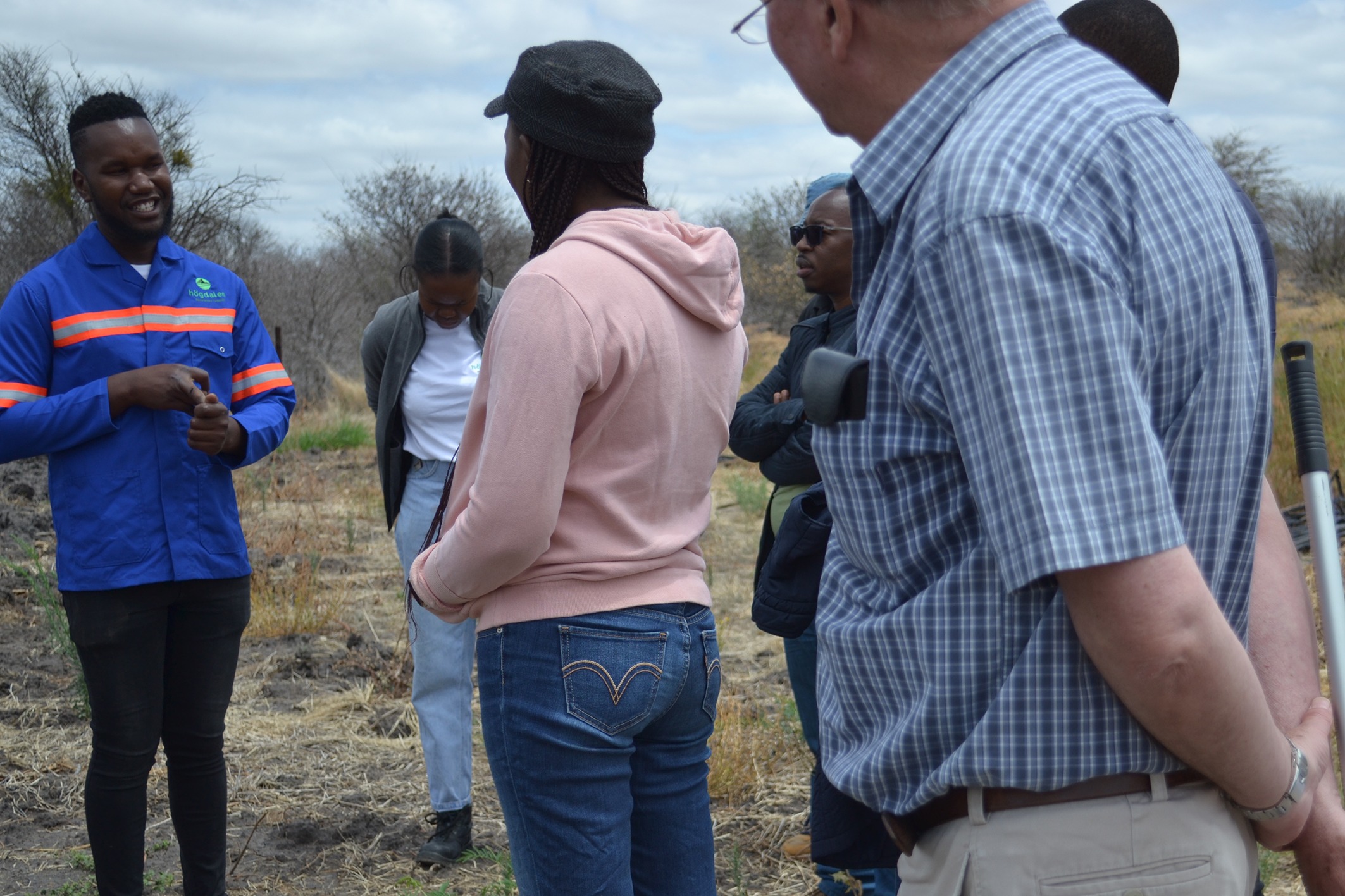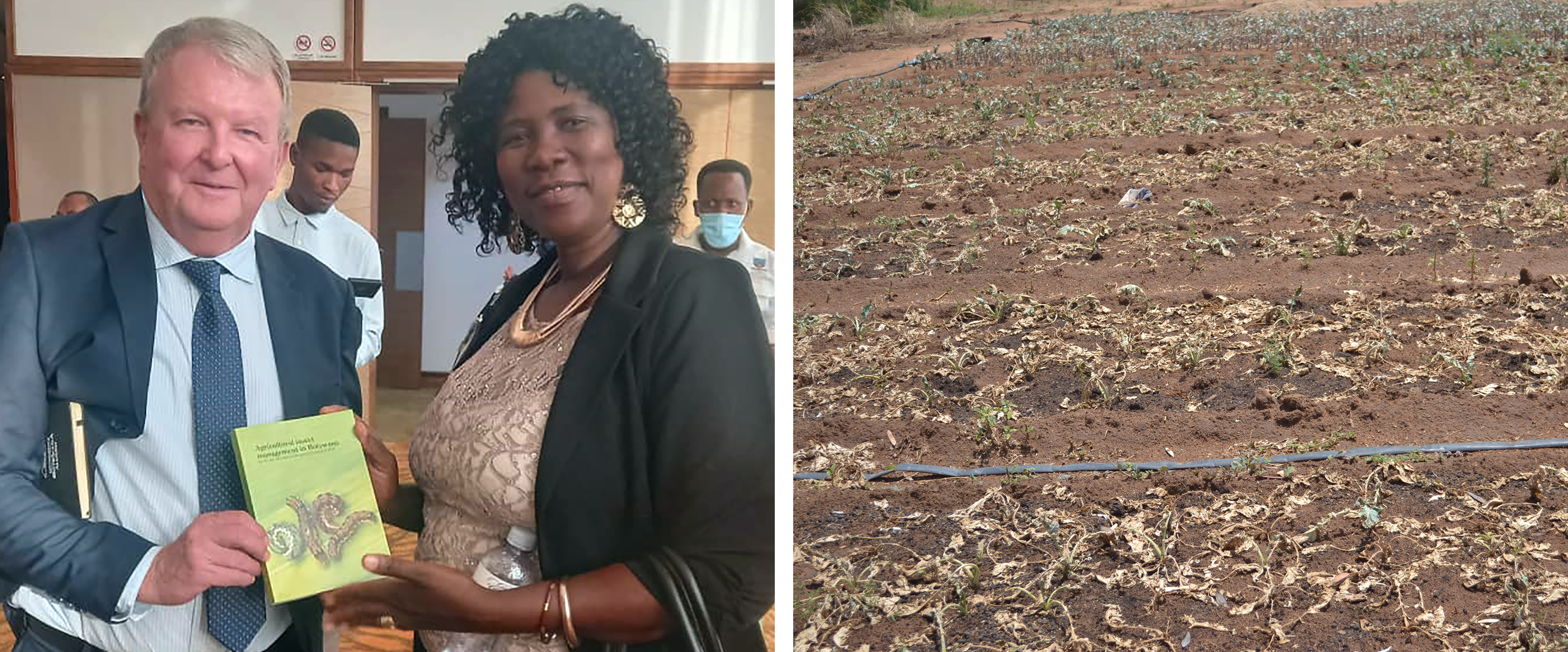

Workshops for Sustainable Insect Management in Botswana
June 13, 2023

There may be as many as ten million undescribed insect species in the world and, at this time, no-one knows how many insect species occur in Africa, let alone Botswana! Given that challenge, it is perhaps surprising that two people have successfully written the first-ever book on insect management in Botswana.
The book, entitled Agricultural Insect Management in Botswana was initiated by the late Prof. Motshwari Obopile who was Professor of Entomology at the Botswana University of Agriculture and Natural Resources (BUAN) until his untimely death in October 2019. The second author is Professor Graham Hall, who was Director of Research and Development at the University of Botswana (UB) between 2018 and 2020. He has been involved with research and management of insect-related projects for over 40 years in numerous countries around the world, and he willingly accepted the task of completing what Professor Obopile began.

The Crawford Fund’s Western Australia Committee supported the printing of the book, and airfares for Prof Hall to return to Botswana for the public launch of the book as part the University of Botswana’s 40th year celebrations in October 2022.
In addition, Prof Hall held four workshops throughout the country for at least 90 farmers to showcase the book and encourage them to use more sustainable agricultural practices. He also presented a copy of the book to His Excellency the President of Botswana, Dr Mokweetsi Masisi.
“The current view of many people in Botswana is that ‘all insects are bugs, all bugs are bad, and that all bad bugs should be killed preferably with a synthetic insecticide,’” said Graham.
The aims of the workshops were to:
- impart knowledge and skills to 50 farmers to correctly identify the insect causing damage to the crop (short term)
- offer alternative control methods other than synthetic insecticides (short term)
- begin a discussion about IPM using Agricultural Insect Management in Botswana as a reference tool and the establishment of a public-private company Integrated Pest Management Botswana (IPMB) (intermediate term).
IPMB has been registered with the Botswana government and aims to be the ‘one-stop-shop’ for IPM and correct insect identification and management advice throughout the country.
According to Graham, there was significant interest in IPM, however, major impediments to uptake including a lack of in-country professional assistance; a lack of government expertise and initiative to promote IPM to farmers; and a lack of in-country trials and research on the benefits of IPM, were holding it back.
“For many years there have been pleas from government and others in Botswana for farmers to grow more food, rather than rely on imports of food from elsewhere. To some extent farmers have risen to this challenge, but a major impediment to producing locally-grown food has been damage from insect pests, and the attendant costs of controlling those pests,” said Graham.
“For the first time in Botswana, a dedicated locally-relevant resource is available that addresses the management of insect pests in agricultural crops and does so by advocating for minimal chemical use and safe and sustainable methods,” he said.
According to Graham this is not a textbook designed to live on a dusty library shelf, rather it is for everyday use by Botswana’s farmers and other agricultural workers who seek practical information on how to grow food in a healthy and sustainable way. For this reason, the book contains information about IPM and biological ways of controlling insect pests and encourages farmers to use these sustainable methods, rather than the traditional method of chemical control and the attendant risks to people, food and the environment.
However, some chemical usage is unavoidable and to that end, the book also contains chapters on the safe use of chemicals including the protection of the agricultural workers, and how to calculate the correct doses of chemicals to use.
“The hope now is that farmers will grow more food using methods that are safe for themselves, their customers, and the environment,” Graham concluded.




 0
0